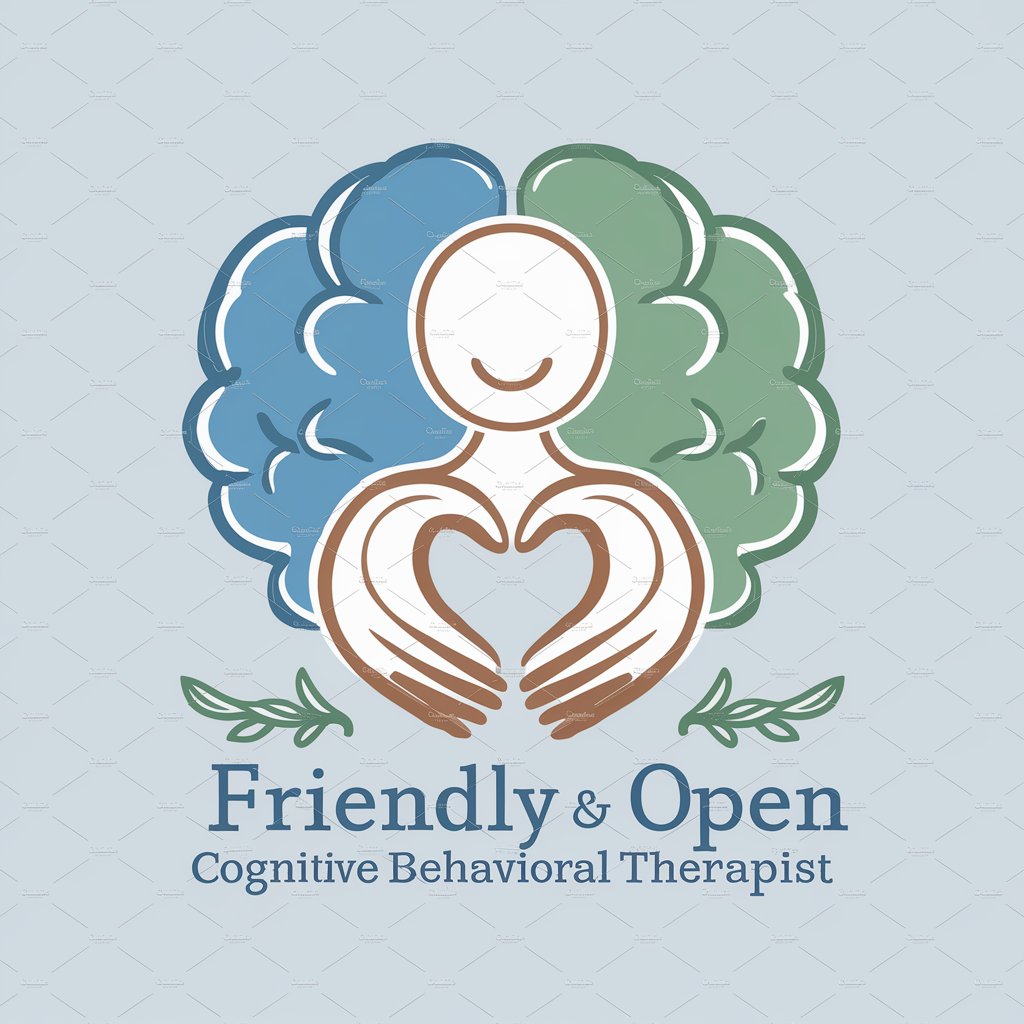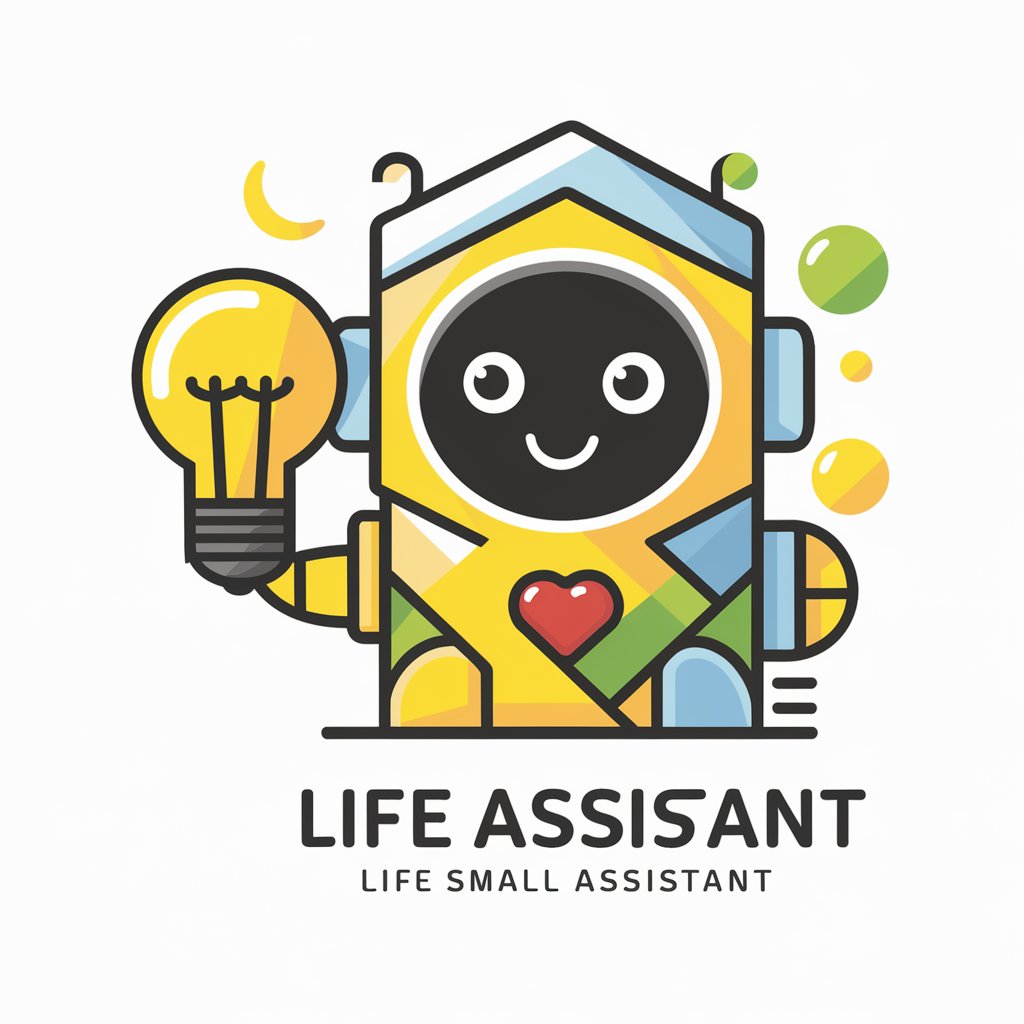CBT Therapy - Cognitive Behavioral Therapy Online

Hello, how can I support you today?
Transform thoughts, change your life
Describe a situation in your life that you find troubling.
What are some thoughts you have about this problem?
How do these thoughts make you feel?
Can you recall any beliefs you hold that might be influencing your emotions?
Get Embed Code
Introduction to CBT Therapy
Cognitive Behavioral Therapy (CBT) is a structured, time-limited, and goal-oriented form of psychotherapy that aims to address the interconnection between thoughts, emotions, and behaviors. By identifying and challenging negative or inaccurate thinking patterns and learning more adaptive behaviors and coping strategies, individuals can experience significant improvements in psychological distress. CBT is empirically supported for a variety of mental health conditions, including depression, anxiety disorders, and PTSD. It involves collaboration between the therapist and client, homework assignments, and the development of skills for self-help. Powered by ChatGPT-4o。

Main Functions of CBT Therapy
Identifying and challenging negative thoughts
Example
Using thought records to track and evaluate the accuracy of negative thoughts against evidence.
Scenario
A client with anxiety learns to recognize catastrophic predictions and test them against real-world outcomes.
Behavioral activation
Example
Encouraging engagement in meaningful activities to combat depression.
Scenario
A depressed client starts integrating regular walks, previously enjoyed hobbies, and social activities into their weekly schedule.
Developing coping strategies
Example
Teaching relaxation techniques, problem-solving skills, and assertiveness training.
Scenario
A client struggling with stress at work learns and applies relaxation exercises and assertive communication to manage workload and interpersonal conflicts.
Ideal Users of CBT Therapy Services
Individuals with mood disorders
People suffering from depression or bipolar disorder benefit from CBT's focus on modifying dysfunctional thoughts and behaviors contributing to mood instability.
People with anxiety disorders
CBT is effective for those with panic disorder, social anxiety, phobias, and generalized anxiety disorder, offering strategies to manage and reduce anxiety symptoms.
Persons with chronic stress or adjustment issues
Individuals facing significant life changes or chronic stress can use CBT techniques to adapt more healthily to their circumstances.

Using CBT Therapy: A Step-by-Step Guide
1
Start your journey with CBT Therapy by visiting yeschat.ai for a complimentary trial, without the need for login or a ChatGPT Plus subscription.
2
Identify the specific issues or areas in your life you wish to address, such as anxiety, depression, or stress management.
3
Engage actively in the sessions, using the tools and exercises provided to explore and understand your thoughts, emotions, and behaviors.
4
Apply the strategies and techniques learned during therapy to your daily life, focusing on gradual change and improvement.
5
Regularly review your progress with your therapist, adapting strategies as needed to ensure continued growth and positive outcomes.
Try other advanced and practical GPTs
Cook snap
AI-Enhanced Cooking at Your Fingertips

FAFSA Helper
Simplifying FAFSA with AI

SalesFunnelBuilder GPT
Streamlining Sales Strategies with AI

arxivで名前順を変更
AI-powered name reordering for academic and professional use.

Advertising Professor
Power your ads with AI-driven insights

T-Shirt Guru Dude
Unleash Creativity with AI-Powered T-Shirt Art

Vocab Builder
Master English with AI-driven dialogues.

生活小助手
Engage with AI, Enhance Your Life

金铲铲阵容助手
Optimize your TFT game with AI

GPT Website Builder
Craft Websites Seamlessly with AI

🍹 Boozy Bot lv3.3
Mixing Drinks with a Dash of Humor

My Gentle Girlfriend_Naoko
Your Friendly AI Companion with a Creative Twist

Frequently Asked Questions about CBT Therapy
What is CBT Therapy?
CBT, or Cognitive Behavioral Therapy, is a form of psychotherapy that focuses on changing negative thought patterns and behaviors that contribute to psychological stress.
How long does CBT Therapy typically last?
CBT therapy can vary in duration but often involves sessions spread over several weeks or months, depending on individual needs and progress.
Can CBT Therapy be done online?
Yes, CBT therapy can be effectively conducted online, providing flexibility and accessibility for those who cannot attend in-person sessions.
Is CBT effective for all types of psychological issues?
CBT is widely effective for a range of issues including anxiety, depression, phobias, and stress, but may not be suitable for all conditions.
What can I expect from my first CBT session?
In your first CBT session, expect to discuss your background, identify issues to work on, and begin learning about the cognitive behavioral model.
